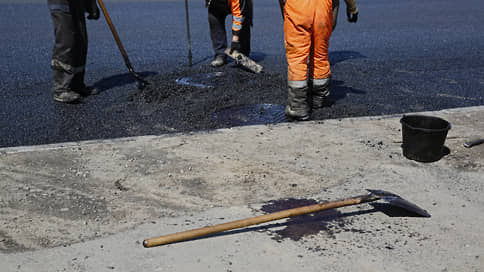The EU decided to pull with Russian rubber – Newspaper Kommersant No. 33 (7478) of 27.02.2023
[ad_1]

The EU, after long hesitation, banned the import of Russian rubber, carbon black, asphalt and bitumen. In the first two cases, the sanctions will come into force from mid-2024, and before this date, imports under quotas are possible, which for rubber are approximately twice the actual current supplies. The export of Russian bitumen to the EU, which accounted for about 6% of its output in the Russian Federation, practically ceased back in 2022. Experts are confident that Russian companies will be able to redirect products to other markets, while European consumers are likely to suffer due to rising raw material costs.
The EU has decided to ban the import of Russian asphalt and bitumen, and from mid-2024 synthetic rubber and carbon black, follows from a publication in the official journal of the EU. Synthetic rubber, on which the European auto industry is heavily dependent, was included in the sanctions after a long dispute at the urging of Poland, which otherwise refused to agree to the tenth package of European sanctions. The compromise was the introduction of temporary import quotas for 563 thousand tons, valid until the end of June 2024. Similar quotas in the amount of 752.5 thousand tons were approved for carbon black (produced from heavy oil refining residues and used in the tire and metallurgical industries).
The largest synthetic rubber producer in Russia is Nizhnekamskneftekhim, a member of SIBUR, with a capacity of more than 700 thousand tons of products per year. In addition, the company owns the Voronezhsintezkauchuk plant with a capacity of more than 220,000 tons of rubber per year. The third large plant – “Togliattikauchuk” (more than 200 thousand tons per year) belongs to “Tatneft”. The company bought the asset from SIBUR in 2019 for RUB 12.8 billion. to provide raw materials for its tire business, which last year was transferred to JSC Tatneftekhiminvest-holding, controlled by Tatarstan.
Last year, the production of synthetic rubber in Russia decreased by 12%, to 1.5 million tons. Their exports to Europe, which in 2021 amounted to about 500 thousand tons, almost halved in 2022, market participants note. In general, Europe consumes more than 1.6 million tons of rubber, while its own production is less than half of this volume. Thus, the established quotas significantly exceed the size of the current supplies of rubber from Russia to the EU.
Kommersant’s sources note that Russian companies will be able to redirect volumes to other markets – to Asia and Africa, and the problem of replacing imported subcomponents for rubber is already being solved either by restructuring logistics or starting their own production (for example, SIBUR launched the production of n-butyllithium). Although, another interlocutor of Kommersant explains, at the largest sales points – in China and India – their own rubber capacities are being built, moreover, natural rubber consumption is high in these regions.
Alexander Gadetskiy, founder of Engineering & Consulting PFA Alexander Gadetskiy, notes that Russian rubber is of very good quality, so it will be in demand in other markets, and it can be transported directly to Europe through other markets, for example, Turkish. He notes that more problems will arise with the transport of bitumen, which requires special transport conditions with heating to avoid solidification. So, he notes, it would be logical to increase domestic consumption in road construction in this area.
In 2021, the Russian Federation produced 8.1 million tons of bitumen and exported 584 thousand tons, of which about 255 thousand tons fell to the EU and the UK, the rest went to Central Asia, Uzbekistan and Kyrgyzstan. The main European consumers were Finland and the Baltics. According to a Kommersant source in the industry, until September 2022, Finland continued to actively import bitumen, but then supplies almost ceased. According to Eurostat, the Baltic states, Sergey Kondratiev of the Institute of Energy and Finance, has reduced the volume of imports by several times and this year, probably, it may completely stop it.
Artem Lebedskoy-Tambiev of Vygon Consulting notes that the ban on imports of synthetic rubber from Russia is likely to increase the costs of European tire manufacturers and make products less competitive compared to products from the US, Japan and China. At the same time, the expert says, in Europe there are capacities for the production of most types of rubber, but the rise in prices for raw materials leads to a decrease in the economic efficiency of plants. “Against the backdrop of a rise in energy prices, European rubber producers reduced capacity utilization, which in the future, with a reduction in supplies from the Russian Federation, may result in a shortage of rubber in the EU market,” he believes.
[ad_2]
Source link





